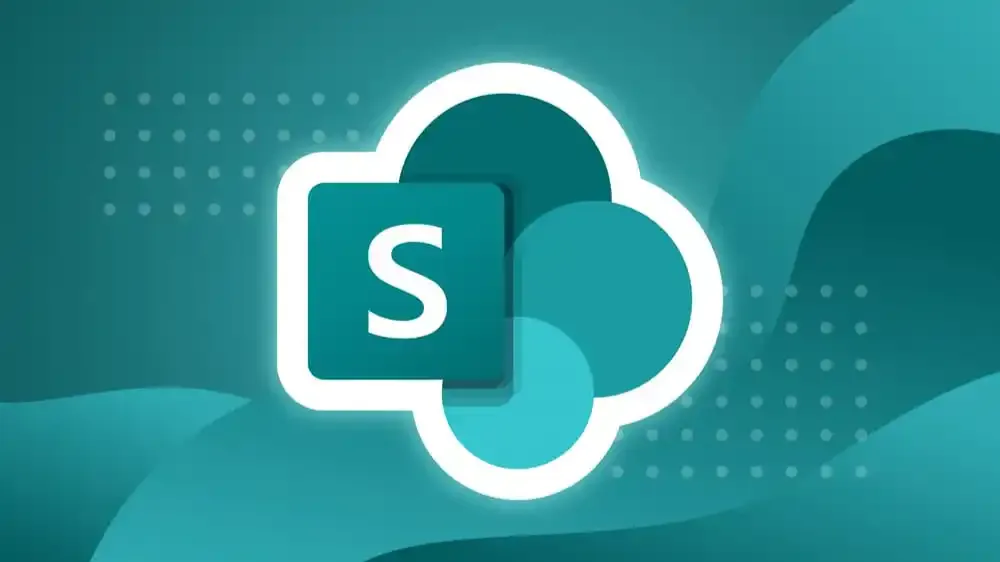Most small businesses start with Excel and basic tools, but quickly face chaos. This guide shows how to use SharePoint, Teams, Power Platform, and Azure to stay organized, compliant, and ready to scale.
When most businesses start, they rely on what feels simple and affordable: Excel spreadsheets, email chains, and a basic Microsoft 365 Business Basic license. At $8 CAD per user, it looks like everything you need.
But as the company grows, cracks begin to show. Documents are scattered across inboxes and desktops. Communication spreads across email, chat apps, and CRMs. Manual processes eat up hours. Compliance and audits become stressful.
The truth? These aren’t just IT problems—they’re business problems that slow growth, erode client trust, and increase risk.
That’s why founders and decision makers eventually face the question: do we keep patching things together, or do we invest in the right foundation?
Microsoft 365 offers a full suite of solutions—SharePoint, Microsoft Teams, Power Platform, OneDrive, and Azure—that solve these issues. But many leaders also consider alternatives like Google Workspace, Slack, Dropbox, or AWS. On the surface they seem easier, but over time they create new risks.
Here’s how each Microsoft 365 technology compares, the problems it solves, best practices for implementation, and the business impact when it’s done right.
The Problem: Scattered files across desktops, emails, and CRMs lead to wasted time, version errors, and compliance failures.
The Alternative: Many businesses start with Google Drive. It’s simple, but its permission controls and compliance features fall short for growing companies. Drive works fine until regulators, auditors, or clients demand stronger governance.
The Microsoft Advantage: SharePoint provides structured document management with granular permissions, version history, metadata, and audit trails. It integrates directly with Teams and Outlook, so documents live where work happens.
Best Practices:
Business Impact: Faster audits, fewer lost files, and stronger client trust. HarjTech helped a financial services firm cut their audit preparation time by 80% after migrating contracts into SharePoint with structured governance.
The Problem: Communication scattered across email, Slack, phone calls, and texts means lost decisions, duplicated effort, and frustrated staff.
The Alternative: Slack is popular with startups for quick messaging, but it creates yet another silo. Files get buried in threads, integrations require extra cost, and visibility across the business is limited.
The Microsoft Advantage: Teams unifies chat, meetings, calls, and documents into a single hub. Files shared in Teams live in SharePoint, calendars sync with Outlook, and approvals run through Power Automate. Teams doesn’t just add another tool—it connects them all.
Best Practices:
Business Impact: Reduced email overload, faster decisions, and improved transparency. One engineering firm we supported reduced internal emails by 30% within two months of a properly structured Teams rollout.
The Problem: Manual approvals, data entry, and reporting waste time and introduce errors. Businesses end up relying on spreadsheets that can’t scale or withstand audits.
The Alternative: Tools like Zapier, Trello, or Asana handle some workflows but lack enterprise compliance. They create fragmented automations that break when processes expand.
The Microsoft Advantage: Power Platform integrates directly into Microsoft 365. Power Apps replace spreadsheets with intuitive apps. Power Automate streamlines approvals and workflows. Power BI delivers real-time dashboards with secure data connections. It’s automation designed for scale and compliance.
Best Practices:
Business Impact: Time savings, fewer errors, and better decision-making. A logistics client we supported replaced manual delivery tracking with a Power App that instantly updated Teams channels. The result: faster client updates and hundreds of staff hours saved annually.
The Problem: Staff use personal drives or Dropbox accounts to store work files. When they leave, critical business data leaves with them.
The Alternative: Dropbox or Google Drive are convenient but lack integration with enterprise identity management. They often bypass compliance and security controls.
The Microsoft Advantage: OneDrive is built into Microsoft 365, tied to company-wide security and governance. It’s ideal for drafts and personal working files, while SharePoint manages final documents. Together, they balance flexibility with control.
Best Practices:
Business Impact: Reduced data loss and smoother handovers. A design firm we supported stopped losing client files when staff left after adopting a OneDrive/SharePoint storage policy.
The Problem: Businesses delay infrastructure planning and rely on local servers, consumer-grade hosting, or piecemeal solutions. The result: security gaps, downtime, and costly migrations.
The Alternative: AWS and Google Cloud are strong platforms but require steep learning curves, complex integrations, and separate identity/security frameworks. For smaller organizations, that means higher cost and complexity.
The Microsoft Advantage: Azure extends Microsoft 365 into enterprise-grade cloud infrastructure. With Azure Active Directory, hosting, backups, and analytics, businesses get security, compliance, and scalability under one ecosystem.
Best Practices:
Business Impact: Better uptime, stronger security, and easier compliance. We helped a healthcare provider migrate sensitive data to Azure, meeting regulatory standards while reducing infrastructure costs by 25%.
Microsoft 365 has the power to solve these problems—but only if it’s implemented with strategy. Without structure, it becomes just another collection of apps.
HarjTech’s Managed Support & Consulting services ensure businesses don’t fall into that trap. We’ve guided dozens of small and mid-sized companies through this transformation—fixing messy SharePoint libraries, structuring Teams environments, building Power Platform automations, and scaling securely on Azure.
We don’t just “set things up.” We provide ongoing governance, support, and compliance oversight so systems stay aligned with business growth.
If you’re a founder, IT director, or executive, ask yourself:
A strong digital foundation isn’t optional. It’s the difference between scaling with confidence and constantly fighting fires.
Explore HarjTech.com or learn more about our Managed Support & Consulting package.
Because in the end, the tools you choose—and how you set them up—determine whether your business is built to grow or built to break.
We step into broken, delayed, or chaotic transformation projects and rebuild operational alignment across people, process, and delivery systems.
Launch a fully digital workspace with Microsoft 365. We handle setup, file structure, document migration, automations, and training—so your business runs smoother, faster, and more securely from day one.
We structure your SharePoint, Teams, and OneDrive environment so Microsoft Copilot can actually find, process, and protect your company’s knowledge.






Learn how Power Platform helps companies replace outdated systems, build custom apps faster, and automate work — all without heavy development costs. This guide shows how to modernize, test ideas quickly, and scale what works.


Learn how Power Platform helps companies replace outdated systems, build custom apps faster, and automate work — all without heavy development costs. This guide shows how to modernize, test ideas quickly, and scale what works.


Relying on CRMs and third-party apps isn’t enough. Learn how Microsoft tools like Power Platform, SharePoint, and Teams can help sales agents automate, scale, and replace their entire client process — without duct-taping apps together.


Relying on CRMs and third-party apps isn’t enough. Learn how Microsoft tools like Power Platform, SharePoint, and Teams can help sales agents automate, scale, and replace their entire client process — without duct-taping apps together.


Discover the top tools that enhance your SharePoint ecosystem—covering forms, automation, governance, Teams, Outlook, Power Platform, and more. Whether you're building digital workplaces or streamlining business processes, this curated list helps organizations choose the right tools to maximize productivity and collaboration.


Discover the top tools that enhance your SharePoint ecosystem—covering forms, automation, governance, Teams, Outlook, Power Platform, and more. Whether you're building digital workplaces or streamlining business processes, this curated list helps organizations choose the right tools to maximize productivity and collaboration.


Learn how to manage file uploads in Microsoft Power Pages using either Dataverse or SharePoint. Understand default behaviors, integration requirements, and how to architect secure, scalable solutions for enterprise-grade document handling.


Learn how to manage file uploads in Microsoft Power Pages using either Dataverse or SharePoint. Understand default behaviors, integration requirements, and how to architect secure, scalable solutions for enterprise-grade document handling.
Let's discuss how our productized solutions can drive your success
Productized IT Consulting & Digital Solutions. Serving clients across Canada with outcome-driven Microsoft solutions that deliver guaranteed results.
© 2024 HarjTech. All rights reserved.